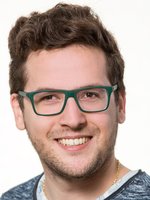Speakers
The PVSSS 2024 offers a series of fourteen lectures and a plenary talk given by following experts (in order of appearance):
Prof. dr. Olindo Isabella
Delft University of Technology (Delft, the Netherlands) – Linkedin
Prof. dr. Olindo Isabella leads the Photovoltaic Materials and Devices group at Delft University of Technology, chairing the topic of Photovoltaic Technologies and Applications. He is an expert in novel solar energy materials, high-efficiency c-Si solar cells, PV-powered multi-functional building elements, X-Integrated PV Systems, and opto-thermo-electrical modelling of PV systems. He received his PhD degree (cum laude) from TU Delft, working on advanced light management for thin-film silicon solar cells. He was Visiting Researcher at the AIST institute (Tsukuba, Japan) working on multi-junction high-efficiency solar cells. He is an Associate Editor of the Optics Express journal, Editorial Board member of the Solar Energy Materials and Solar Cells journal, Senior Member of the Optical Society of America, member of the American Chemical Society and of the Materials Research Society, and co-organizer of the nPV workshop (chair in 2023). He has contributed to 5 scientific books, has (co-)authored more than 150 peer-reviewed publications, has more than 20 patent applications and his H-index is 34.
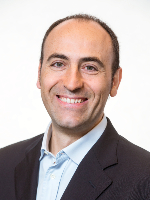
Prof. dr. Miro Zeman
Delft University of Technology (Delft, the Netherlands) – Linkedin
Prof. dr. Miro Zeman received his Ph.D. degree (cum laude) from the Slovak University of Technology in Bratislava in 1989 for research on amorphous silicon. In 2009 he was appointed Full professor at Delft University of Technology where he leads the Electrical Sustainable Energy department. Miro Zeman is a leading expert in light management, modelling, and development and application of novel materials and nanostructures in silicon-based solar cells. He is author of more than 450 publications, has written or contributed to 5 scientific books, has 6 patent applications and his H-index is 53 (Google Scholar).
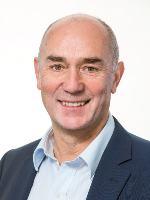
Dr. Rudi Santbergen
Delft University of Technology (Delft, the Netherlands) – Linkedin
Dr. Rudi Santbergen studied Applied Physics at TU Eindhoven and got interested in developing physical models. In 2008 he obtained his PhD degree in 'Optical Absorption Factor of Solar Cells for Photovoltaic/Thermal Systems' under the supervision of prof. Ronald van Zolingen. The algorithms he has developed form the foundation of the solar cell optical model 'GenPro4', used by researchers worldwide. In 2009 he joined the PVMD group at TU Delft to extend the modelling capabilities of the group. I spent my sabbatical in the solar cell group of Dr. Kenji Yamamoto at Kaneka corporation in Japan. In 2019 he was appointed to head the research line of 'photovoltaic multiscale modelling' as assistant professor in the PVMD group. Over the years, he has been responsible for a wide range of modelling tasks, working in Dutch, European and bilateral projects and enjoyed working with many experts in the field.
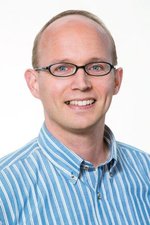
Prof. dr. Ivan Gordon
IMEC (Leuven, Belgium) / Delft University of Technology (Delft, the Netherlands) – Linkedin
Professor Dr. Ivan Gordon obtained his PhD in February 2002 in the field of novel magnetic materials for sensor applications from the University of Leuven in Belgium. He started to work at IMEC in Belgium in June 2003, where he is currently leading the Photovoltaics and Energy System activities, working on advanced c-Si wafer-based and thin-film solar cell and module technology (including perovskite-based tandem devices) and on the integration of Photovoltaics in the energy system of the future. He is also part-time professor in Digital Photovoltaics at the Delft University of Technology in the Netherlands and editor-in-chief of the Elsevier scientific journal Solar Energy Materials and Solar Cells (impact factor of 6.9). Since January 2016, he is the coordinator of the joint program on Photovoltaics of the European Energy Research Alliance (EERA) and a steering committee member of the European Technology and Innovation Platform Photovoltaics (ETIP-PV). He has authored and co-authored more than 250 journal and conference papers mostly in the field of Photovoltaics (>3700 citations, h-factor 32, March 2021).
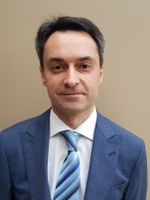
Prof. dr. Arthur Weeber
Delft University of Technology (Delft, the Netherlands) – Linkedin
Prof. dr. Arthur Weeber studied Physics and Chemical Engineering at the University of Amsterdam. After completing his PhD at the same university in 1988, he joined ECN. He has more than 25 years of experience in the field of PV technology and since 2015 he combines his work at ECN with a professorship in the PVMD group at Delft University of Technology. Currently, he is Program Manager PV Technologies at TNO Energy Transition and coordinating the R&D program on cells and modules. Technologies researched are based on crystalline silicon, thin-film with a focus on CIGS and perovskites, and tandems (mainly silicon/perovskite and flexible CIGS/perovskite).
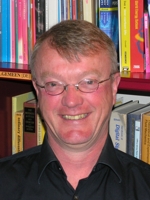
Dr. Eszter Voroshazi
CEA-INES (Le Bourget-du-Lac, France) – Linkedin
Dr. Eszter Voroshazi is leading the PV module lab at CEA-INES focusing on innovative PV module materials, technologies, and their eco-design. She has been previously R&D Manager of imec’s Photovoltaic activities covering thin-film, silicon and tandem cells, innovative module technologies and PV system simulations. She has been strongly involved in launch of imec’s activities on the EnergyVille campus as Activity Leader and secretary of the industrial advisory board. She holds an engineer title from INSA de Rennes (2008) in Material Science and Nanotechnology and Ph.D. in Engineering from the Katholieke Universiteit Leuven( 2012) and has in-depth expertise in PV device and module technologies, integrated PV applications as well as their sustainability. Eszter Voroshazi is scientific committee members of EUPVSEC, IEE PVSC, expert member of ETIP-PV, IEC standardisation committee member, and she has published more than 80 papers.
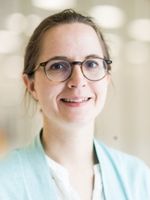
Dr. Nouha Gazbour
CEA-INES (Le Bourget-du-Lac, France) – Linkedin
Dr. Nouha Gazbour is a research Engineer, graduated as an electrical engineer from the National School of Engineering in Monastir (Tunisia) in 2015. In 2016, she completed her PhD on the systemic integration of Eco-design in photovoltaic technologies from the R&D stage at Grenoble University (France) in collaboration with CEA and Art et Metiers Institute (ENSAM). After the PhD, she worked as a research engineer in the IRT M2P institute to conduct Life Cycle Assessment (LCA) studies in the metallurgical field. In September 2019, she joined CEA as PV sustainability advisor and today she leads the team of Eco-innovation within INES in CEA.
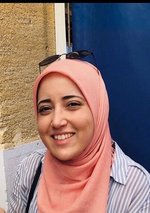
Dr. Radovan Kopecek
International Solar Energy research Center Konstanz (Konstanz, Germany) – Linkedin
Dr. Radovan Kopecek obtained the Dipl. Phys. degree at the University of Stuttgart in 1998. In 2002 he completed his Ph. D. dissertation in the field of c-Si thin film silicon solar cells in Prof. Ernst Bucher´s group at the University of Konstanz. One of the founders of ISC Konstanz, Dr. Kopecek is since 2007 the leader of the advanced solar cells department focusing on high efficiency n-type devices. Dr. Kopecek is organizing workshops and giving talks at conferences and for energy ministries on solar cell and module technologies with the focus on bifacial technology, a topic he has written a book about. In addition, Dr. Kopecek is the initiator of setting up a new Technology center in Chile (continuing with Ethiopia) dealing with desert modules and systems- AtaMoS-TeC. Since 2016, he is in the board of directors at EUREC- European association for research centers involved in renewable R&D.
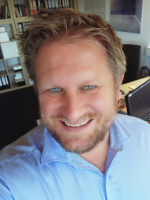
Dr. Alessandra Scognamiglio
Italian National Agency for New Technologies, Energy and Sustainable Economic Development (Italy) – Linkedin
Dr. Alessandra Scognamiglio holds a Master in Architecture (University of Naples Federico II, 1998). She is a licensed architect (Naples, 1998) and has a PhD in Technologies for Architecture and Environment (Second University of Naples Luigi Vanvitelli, 2010). Since 2000 she works as researcher at ENEA (Italian National Agency for New Technologies, Energy and Sustainable Economic Development | www.enea.it), Photovoltaic Systems and Smart Grids Unit. Her main interest is working on the hybrid border between scientific research and design, to create a domain of common understanding and possibilities for experimentations in the real living environment. After having worked at the architectural scale, since 2007 she investigates the topic energy-landscapes, with a special focus on photovoltaics and agricultural greenhouses. Her main fields of activity are: Building Integrated Photovoltaics (BIPV), Photovoltaics and sensitive landscapes, Net Zero Energy Buildings, Smart Cities, and agrivltaics. She is Coordinator task force Sustainable Agrivoltaics and Chair of the Italian Association for Sustainable Agrivoltaics (AIAS). In 2022 she was the General Chair of the 8th World Conference on Photovoltaic Energy Conversion.
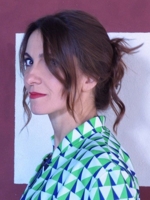
Prof. Dr. Rutger Schlatmann (Plenary speaker)
Helmholtz-Zentrum Berlin (Berlin, Germany) – Linkedin
Prof dr. Rutger Schlatmann is the head of the Solar Energy Division at Helmholtz-Zentrum Berlin and founding director of its technology transfer institute PVcomB (established in May 2008). Since 2012, he has been a full professor of solar technology at HTW Berlin. After obtaining a PhD on the topic "Multilayer X-ray optics" at the FOM Institute AMOLF (Amsterdam, the Netherlands) in 1995, he has worked as a research scientist at Akzo Nobel and R&D manager for solar company Helianthos (now HyET Solar). Since 2022, he has also been chairman of the European Technology and Innovation Platform Photovoltaics (ETIP-PV), an advisory committee to the European Commission, of which he has been a member since 2014. Since 2010 he is also vice president of the Berlin-Brandenburg Energy Network (BEN).
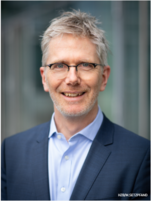
Dr. Patrizio Manganiello
Delft University of Technology (Delft, the Netherlands) – Linkedin
Patrizio Manganiello received the Master Degree, cum laude, in Electronic Engineering from the University of Salerno (Italy) in 2011 and the Ph.D. in Energy Conversion from the University of Campania “Luigi Vanvitelli” (Italy) in 2014. During his PhD, he carried out his research activities at the University of Cergy-Pontoise (France), from February 2013 until May 2014, and at the National University of Colombia in Medellin (Colombia), in June 2014. From October 2013 until June 2014 he was Adjunct Professor at the University of Cergy-Pontoise, teaching Computer Systems for Smart Buildings. In 2015, he collaborated with the Department of Electronic Engineering and Computer Science of the University of Salerno. From February 2016 until January 2018, he was working with KU Leuven (Belgium) as Postdoctoral Researcher in Modeling and Demonstration of Smart Photovoltaic Modules, in collaboration with IMEC (Belgium). Since March 2018 until December 2019, he was a Marie Skłodowska-Curie Research Fellow working at IMEC on the project "Smart Reconfigurable photovoltaic modules for Building Integrated PhotoVoltaic applications". Since January 2020, he is Assistant Professor of Photovoltatronics at Delft University of Technology. His main research interests are in the development of innovative PV-based intelligent energy agents, the analysis, design and control of switching converters for renewable energy sources, and the management and on-line diagnostics of the whole energy conversion system as well as its different components. He is member of the IEEE and member of the Technical Committee of the ELECTRIMACS conference. He is serving as Editor of IEEE Journal of Photovoltaics. He is co-inventor of 4 international patents on simulation and control of photovoltaic systems and energy management. He is also co-inventor and owner of an Italian patent on automatic detection of lighting points.
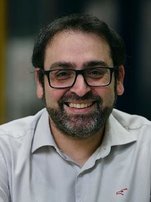
Dr. Malte Ruben Vogt
Delft University of Technology (Delft, the Netherlands) – Linkedin
Dr. Malte Ruben Vogt received his doctoral degree in physics from the Leibniz University of Hannover in 2015. Afterwards he focused on modelling the optical and thermal behavior of PV modules under realistic conditions and creating the daidalos-cloud.de ray tracing platform at the Institute for Solar Energy Research Hamelin (ISFH). In 2020, he joined the Photovoltaic Materials and Devices at the TU Delft to extend his research area to tandem PV modules and in 2022 he became assistant professor for Circular Renewable Energy Materials.
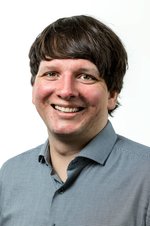
Prof. dr. Peter Palensky
Delft University of Tecnhology (Delft, the Netherlands) – Linkedin
Prof. dr. Peter Palensky is the chair of Intelligent Electric Power Grids at TU Delft, Netherlands. He is active in international committees such as IEEE and is associate editor for the IEEE Transactions on Industrial Informatics. His main research field is complex and integrated energy systems. He teaches Energy Efficiency in the bachelors, and Intelligent Electrical Power Grids in the masters, covering grid dynamics, automation technology, and integrated energy systems. One of the main activities in his research is hybrid numerical models and how to describe and use them. Using such models, a formerly incomprehensible and complex energy system can be analyzed for efficiency, stability margins, optimality, and other expected features. With his team he works on industry and smart cities, transmission and distribution, security of supply and cyber security, hardware-in-the loop setups and number crunching for future and complex power systems.
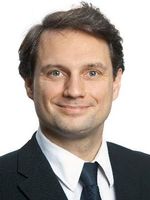
Prof. dr. Pavol Bauer
Delft University of Technology (Delft, the Netherlands) – Linkedin
Prof. dr. Pavol Bauer received his PhD degree in 1995 from Delft University of Technology. He is currently the head of DC systems, Energy conversion & Storage group of Electrical Sustainable Energy department. He received his Masters in Electrical Engineering at the Technical University of Kosice in 1985 and his PhD from Delft University of Technology in 1995. From 2002 to 2003 he was working partially at KEMA (DNV GL, Arnhem) on different projects related to power electronics applications in power systems. Pavol published over 80 journal and almost 300 conference papers in his field, he is an author or co-author of 8 books, holds 4 international patents and organized several tutorials at the international conferences. He has worked on many projects for industry concerning wind and wave energy, power electronic applications for power systems such as Smarttrafo; HVDC systems, projects for smart cities such as PV charging of electric vehicles, PV and storage integration, contactless charging; and he participated in several Leonardo da Vinci and H2020 EU projects as project partner and coordinator.
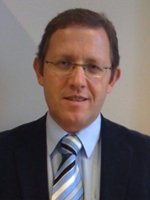
Prof. dr. Cor Kruijsdijk
Shell (Amsterdam, the Netherlands) – Linkedin
For the last 5 years Cor van Kruijsdijk has been working as a senior principal scientist (Physics) in the Long Range Research department at Shell, focused primarily on Green Hydrogen. As a native of the Netherlands, Cor was trained as an atomic physicist and joined Shell E&P Research in the Netherlands in 1985. There he worked in recovery processes for conventional oil and gas. In 1989 he was transferred to Shell Canada’s E&P laboratory in Calgary where he worked on various reservoir engineering topics. In 1993 Cor was appointed to the chair in Reservoir Engineering in Delft University in the Netherlands a position he held for 12 years on a full-time basis. Upon leaving TU Delft’s employ he maintained his professor role at TU Delft on a part-time basis for another 13 years. In 2005 when Cor re-joined Shell, he was transferred to Shell Canada’s laboratory in Calgary as a research consultant for in situ recovery of (extra) heavy oils. During his time there he also was an adjunct professor at Calgary University. In 2009 Cor returned to Shell’s E&P lab in Rijswijk as the technology and reservoir engineering advisor in the Enhanced Oil Recovery group in Shell Innovation R&D. In 2016 Cor joined Shell’s Long Range Research department at the lab in Amsterdam.
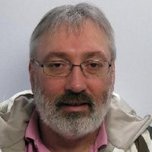
Dr. Hesan Ziar
Delft University of Technology (Delft, the Netherlands) – Linkedin
Hesan Ziar was born in 1988 in the north of Iran. He finished high school at the National Organization for Development of Exceptional Talents (NODET) in 2006 in the field of Mathematics and Physics. He received PhD degree in Electrical Engineering from the University of Tehran, Iran, in 2017 for his work on the probabilistic study of partial shading on photovoltaic (PV) modules carried out under the supervision of Prof. Shahrokh Farhangi. In the same year, he joined the photovoltaic material and devices (PVMD) group of the Delft University of Technology, the Netherlands, where he dived into several research activities related to photovoltaic systems as a postdoctoral researcher. Since November 2019, he is working as Assistant Professor in the PVMD group. Along the way, he has collaborated with several companies and research institutes within Dutch and/or European projects, such as INNOZOWA and TRUST PV. At the TU Delft, he gives lectures on Sustainable Energy Technologies and Photovoltaic Systems courses. Hesan Ziar has worked on a wide variety of topics related to photovoltaic systems, their modelling and applications and associated power electronics. His vision is that every surface in urban areas can potentially contribute to the sustainable energy transition.
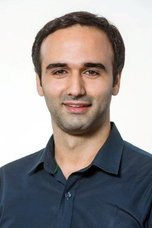
The experimental sessions are carried under the supervision of the manager of the PV Laboratory:
Dr. Robin Vismara
Delft University of Technology (Delft, the Netherlands) – Linkedin
Dr. Robin Vismara studied Sustainable Energy Technology at Delft University of Technology, graduating in 2014 with a thesis on thin-film solar cells. He then obtained a Ph.D. degree from the same university in November 2020 with a thesis titled "Advanced Light Management in Thin-Film Solar Cells". Since 2019 he has been involved in the development of numerous online courses, on the topics of photovoltaic modelling and experimentation (more info here). Since November 2021 he is a full-time lecturer of photovoltaics at Delft University of Technology. His research interests are absorption and efficiency limits in solar cells, light management in (thin-film) solar cells, and modelling of photovoltaic devices and systems. Currently, he mainly focuses on the education of future researchers and engineers on the topics of renewable energy and photovoltaic materials, devices, and systems.
